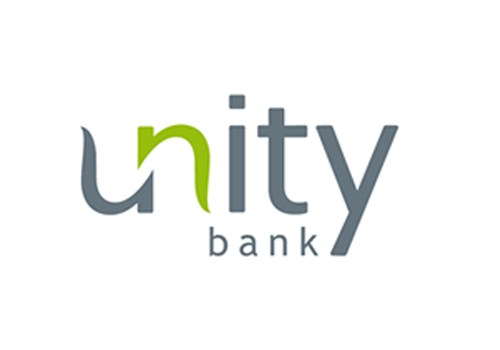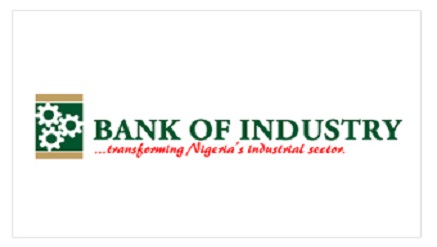E-Financial
Unity Bank Posts N27B Gross Earnings in H1’22 Records 23% Growth in PAT

Retail lender, Unity Bank Plc has posted gross earnings of N27.6 billion for its 2022 half-year results, representing a growth of 17% year-on-year.

In its unaudited half-year financials submitted to the Nigeria Exchange Group Limited, the Bank also made significant improvements across key performance indicators.
The Bank grew Profit Before Tax (PBT) by 23% which rose to N1.8 billion from N1.5 billion in the corresponding period of 2021. Profit After Tax (PAT) for the period equally increased by 23% to close at N1.6 billion from N1.382 billion in H1’21.
The key highlights of the financial statements showed growth in interest and similar income, which rose 18% to N23.938 billion from N20.273 billion in the corresponding period of 2021, an indication of sustained growth in the loan book as well as improved earnings from the lender’s robust digital channels, arising from sustained investment in its digital payment infrastructure.
Similarly, the lender posted sustained asset growth as total assets moved up by 7% to N574.3 billion from N538.9 billion in 2021.
Other key highlights of the financial statement include a 12% growth in deposits, which rose to N359.5 billion from N322.3 billion in December 2021, a clear indication of the positive trend of the Bank’s innovative retail products targeting several segments of the retail market as well as enhanced customer acquisition strategies for emerging products rolled out to the market during the period under review.
In the same vain, the lender recorded an increase on its loan books to N303.632 billion from N269.270 billion in 2021, representing a 13% growth.
Commenting on the financial statements, the Managing Director/CEO of Unity Bank Plc, Mrs Tomi Somefun welcomed the H1’22 results.
She noted that while the key performance indicators continue on an upward trajectory; PBT (23% YoY), Total Assets (7% YoY) and gross earnings (17% YoY); the outlook for our financial position has now moderated significantly looking at other fees and income lines which performance was hitherto characterised by volatilities in the operating environment.
“As the Bank aims to further grow all indices to double-digit regions in the coming years, one reassuring take from the financial position lies in the market confidence, as well as steadily growing retail and SME franchise arising from the development of products that resonate with different markets segments, which will enable the Bank to continue to operate and successfully navigate the tough operating environment, amid rising economic headwinds,” Mrs Somefun stated.
The Unity Bank boss also stated that having invested massively in technology to drive a major revamp in our digital Banking products and channels including the Unifi Mobile App, our USSD, *7799#, internet banking, etc., the major focus is to drive increased optimisation which will enable the Bank to provide electronic convenience in the way we support our teaming customers and market segments and more often change the way they transact business.
In the view of analysts, the key performance indicators showed that the market sentiments are responding positively to the strategies of the lender’s management to accelerate the growth momentum designed for the Bank.
E-Financial
CBN Expresses Concern Over Foreign Investments in Nigeria Fintechs

The Central Bank of Nigeria in its 2025 Fintech Policy Insight Report, has raised concern over Nigeria’s fintech sector heavily dependent on foreign investment, exposing it to swings in global markets.

The report said the sector has shown resilience despite global economic pressures, but warned that reliance on external capital leaves it vulnerable to market fluctuations.
It would be recalled that startups in the country raised $520m in equity funding in 2024, down from about $747m in 2019, when Nigeria captured roughly 37 per cent of all African startup investment.
This performance, amid significant global macroeconomic gyrations, underscores Nigeria’s position as a key hub for financial innovation. The sharp rise in interest rates in advanced economies during 2022 contributed to a slowdown in venture capital funding.
“These dynamics highlight the importance of developing domestic funding avenues, such as leveraging Nigeria’s capital markets, to reduce currency risk and sustain fintech growth,” the apex bank stated.
Olayemi Cardoso, CBN Governor, said Nigeria is undergoing a rapid and significant financial evolution. Over the past decade, the nation’s fintech landscape has grown from a handful of startups into one of Africa’s most vibrant innovation ecosystems.
“Even amid global economic headwinds, Nigerian fintech firms continued to attract investment and drive change. Today, with improved stability of our currency and domestic economy, it is clearer than ever that financial innovation can advance inclusion at scale,” the executive commented on the report.
In addition to funding, the central bank underscored Nigeria’s continued leadership in digital financial infrastructure. More than 25 per cent of all electronic transactions in Africa’s most populous nation are processed via real-time payment channels, with close to 11 billion transactions processed in 2024, up from five billion in 2022. The report described Nigeria’s instant payments platform, NIBSS NIP, as among the most mature and widely adopted globally.
The report also mentioned the need to strengthen system integrity and reputation, pointing to compliance reforms, anti-money laundering supervision, and consumer protection measures as key priorities for sustaining investor confidence.
By focusing on domestic funding, regulatory modernisation, and innovation infrastructure, the CBN aims to position Nigeria not only as a fintech front-runner but also as a rule-setter whose regulatory lessons are relevant to peer emerging and high-growth economies globally, the central bank said.
Stakeholders surveyed by the CBN also cited compliance costs as a significant challenge to innovation. According to the report, 87.5 per cent of respondents said that the cost of meeting regulatory and risk requirements significantly impacts their capacity to innovate, while delays in product approvals and regulatory timelines also remain major bottlenecks.
The report noted that 62.5 per cent of fintech firms plan to expand regionally, and there is strong support for regulatory pass-porting frameworks to enable compliant expansion into other African markets. However, the CBN warns that such cross-border growth requires a stable funding base and coordinated regulation.
E-Financial
UBA’s Easy and Instant Account Opening Thrills Returnee

After a few years abroad, I returned to Nigeria and faced a dilemma. Let me tell you all about it.

UBA
A few days ago, I was dragging my luggage through Murtala Muhammed International Airport. Everything felt bright and beautiful. Not necessarily in aesthetics, but in the vibrant colours, sounds, and energy all around. After three intensive years in the UK, I was finally back home. Ready for the hustle and bustle of Lagos life, and yes, the comfort of my parents’ home.
The plan was simple. Settle down and get my life on track. I’d sorted the job, and I had my person. But then came my dilemma. Money!. This doesn’t mean I was short of it or had too much of it. The real issue is where to actually keep and manage it in this country with daily dramatic happenings. With just two weeks left before I resumed at my new workplace, I had no time for long queues, endless paperwork, or the classic “Nigeria bank stress.” So, I needed an account, and I needed it fast.
So I turned to my best friend, Google, and typed, “Instant account opening in Nigeria.”
In less than a second, I was redirected to the United Bank for Africa instant account opening portal. A few taps later, and I had a fully functional account. Just like that. I could receive my funds, transfer my funds, and start building my financial life here again.
In less than a second, I was redirected to the United Bank for Africa instant account opening portal. A few taps later, and I had a fully functional account. Just like that. I could receive my funds, transfer my funds, and start building my financial life here again. Talk about ease, and this beautiful experience truly exemplified that definition
I was genuinely amazed. It felt too easy, almost suspiciously easy. But it was real, I mean, really soft like they were just thinking all about me while developing this new feature.
If you’re like me and pressed for time, avoiding unnecessary stress, or just ready to sort your finances without the hassle, consider this your sign.
UBA’s instant account opening is a game-changer. No queues to cut into your precious time. Just you and your phone, minutes away from being banked.
Get started here: https://aop.ubagroup.com
Trust me, if I could do it between unpacking and settling in, you can do it too. Your future self will thank you.
E-Financial
BOI Secures CBN Nod for Sharia Banking, Unlocks Ethical Funding Boom

Bank of Industry (BOI) has received Central Bank of Nigeria (CBN) approval to launch a Non-Interest Banking (NIB) Window, expanding ethical financing for underserved businesses nationwide.

BOI
The move positions BOI to mobilise Sharia-compliant funds, finance assets and raw materials without interest, and target MSMEs plus high-impact sectors previously sidelined by conventional loans.
Divisional Head of Public Relations, Theodora Amechi, said the window aligns BOI with social goals, boosting real economy support and sustainable industrial growth.
MD/CEO Dr. Olasupo Olusi hailed it as a “pivotal moment,” enabling the bank to serve faith-sensitive enterprises shunning riba-based loans.
Analysts see it as CBN’s vote of confidence in BOI’s governance, set to spur innovation and inclusive financing for Nigeria’s ethical business segments.
Established in 1959 as Nigeria’s top Development Finance Institution, BOI now strengthens its drive for broad-based economic transformation.

 General News3 days ago
General News3 days agoGlobacom Donates ₦1Bn to Lagos State Security Trust Fund

 Telecom3 days ago
Telecom3 days agoAirtel Nigeria Commits to Upgrade of its Network Infrastructure for Improved Quality of Service

 E-Business3 days ago
E-Business3 days agoPwC Reveals AI Scaling Gap Slows Africa’s Digital Transformation

 E-Financial3 days ago
E-Financial3 days agoEcobank Profit Jumps 29 Percent to N950Bn

 News3 days ago
News3 days agoCIoD, NIPSS Partner to Deepen Governance, Leadership Standards

 News3 days ago
News3 days agoNRS Chairman Outlines Ways Nigeria can Move from Potential to Economic Prosperity

 General News3 days ago
General News3 days agoWIEG to host Nigeria’s first International Investment Summit in Lagos

 News3 days ago
News3 days agoOrya, Ex-NEXIM MD Jailed 490 Years for N2.4Bn Fraud



























